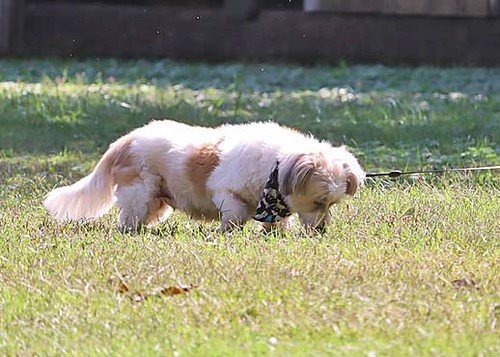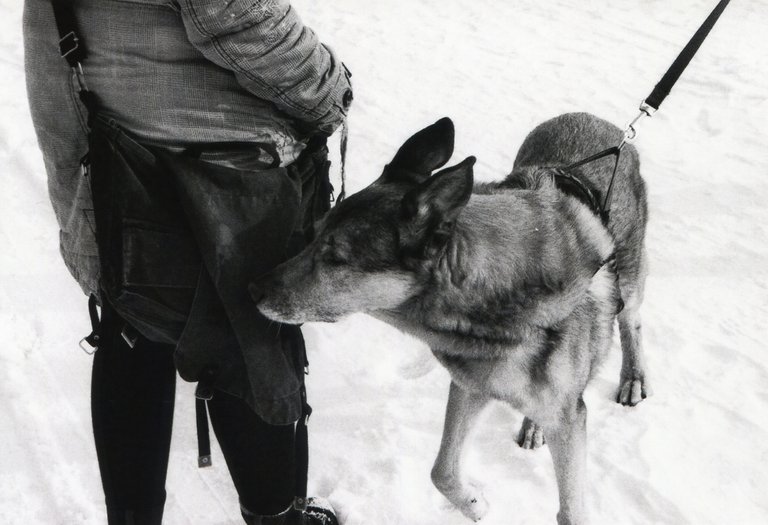As a person, I have a very good sense of smell and can perceive things around quickly and my friends will always tell me that I have the nostrils of a dog but I know it is exaggerated but then they will usually ask me what will happen when I get married and become pregnant but that is for the future and my pregnancy moment to tell because with pregnancy, things change a lot but in all, I do not have the nostrils of a dog or the sense of smell dogs have like my friends will say because dogs are said to be ten thousand to about one hundred thousand times better than that of us humans as they can detect odors in part per trillion.
When we walk around doing our daily activities, we are able to pick either a smell is good or bad, and we are able to attribute certain smells to certain substances such as plants, but I can be somewhat sure that if you are to take a smell survey now, you would not be able to identify a lot of smells, and you will not even smell anything at all. There are times you would also say that the environment where you are isn't smelling but this isn't true because every thing, animal, plant, environment and even we humans expel certain type of smell but while we are not equipped enough to smell them all, to dog the smells are picked on each layer.

Flickr
When you take your dog on a walk, it is not going straight, instead it is perceiving the smell of concrete, dirt, dead and decaying plants, living plants, dead animals, foot chemicals dropped by people who passed before, dog scents, and other animals or thing that has passed through the area of the dog walk. While they can perceive these smells, they are able to identify the time frame of some of those smells like a dog can tell when another dog marked a side of the road, how long a decaying carcass has been lying, and how long was a particular treat carried passed the foot walk.
If you do not understand how great dog smelling abilities are, they are used to look for missing people within a particular area, find buried carcasses, identify drugs and illicit substances, and find explosives but it doesn't end there because these ability of theirs might be able to save our lives or that of our loved ones in the future a they are being used to detect diseases now which should normally not be detectable with smell or identify until it is too late.
Smell is one ability that most organisms have even when they do not have eyes, or any other senses, they use this ability to identify chemicals around them and so they follow the chemical scent trail to live. We can all agree that smell or odor are volatile molecule that are released from their sources and travel through air or water to be picked up by animals that are able to identify them.
When dogs inhale air, it moves from their nasal turbinates to the ethmoid turbinates where the olfactory epithelium lies and the epithelium houses the olfactory sensory nerves which possesses millions of scent receptors up to 300 million receptors that are covered in cilia to be able to pick the scent and each are activated when a scent binds with the cilia but as the millions of receptors exists they are grouped into small batches designed to identify select molecules with hyperspecific lock and key scent fashion thereby allowing them to be able to identify a lot of smells in one. The brain then is able to decipher the smell even when they all bind based on the combination of receptors that the smell activated.
After the scent has been picked up by the neurons, a signal is sent to the olfactory bulb which is responsible for processing smells and compared to humans, the olfactory bulb of dogs are 40 times larger relative to their brain size. We should be able to tell the importance of them now in our lives but that's not all, because dogs are able to identify pheromones via an organ in the roof top of their mouth which is the Vomeronasal organ. pheromones is what dogs use to pass messages of their age, sex, and sexual readiness in the urine the leave on the side walk.
It is this abilities of dogs that humans are banking on to be able to help us solve a lot of mysteries. In a study scientist put a fingerprint on a glass side out of five glass slides, leaving the remaining 4 clean, and they kept it aside for about 3 weeks where a dog was able to detect the glass slide touched by a human 99 out of 100 times and even impressively the dog was able to identify the slide up to 50 times when the slides were exposed to rain, sun, and other environmental factors for a week.
These smell ability has helped us to be able to train dogs to be able to help identify cancer in human. This is different from doctors trying to use different tumor markers like Calcitonin, prostrate-specific antigen, immunoglobulin in blood when there is cancer, and so on and while these tests are able to help us identify cancers, it is difficult to identify lung cancer easily until the cancer has spread round the lungs but with dogs, we have been able to use food treats to help them help us identify lung cancer samples and dogs have been seen to be able to identify lung cancer in patients at a rate of 97.6% which is remarkable for a cancer that isn't easily detectable and would require a CT scan to identify.
We are improving on dogs ability to smell so as to help us with a lot of other health related issues as well as other problems that can be identified through their sniffing ability. For now there is no regulation on Animal-based Diagnostics but once there is, we will be able to use dogs' ability to smell for a lot of health benefits.
Reference
https://www.mdpi.com/2076-2615/12/4/517
https://pmc.ncbi.nlm.nih.gov/articles/PMC3018978
https://bmccancer.biomedcentral.com/articles/10.1186/s12885-021-08651-5
https://pmc.ncbi.nlm.nih.gov/articles/PMC5131614/
https://www.rockefeller.edu/news/30838-study-reveals-smell-receptors-work
https://www.smithsonianmag.com/science-nature/meet-dogs-sniffing-out-whale-poop-science-180958050
https://apnews.com/general-news-7168c3a5321d42ba990fba953a163837
https://www.frontiersin.org/journals/veterinary-science/articles/10.3389/fvets.2018.00056/full
https://pmc.ncbi.nlm.nih.gov/articles/PMC5884888/
https://www.frontiersin.org/journals/veterinary-science/articles/10.3389/fvets.2020.00159/full


